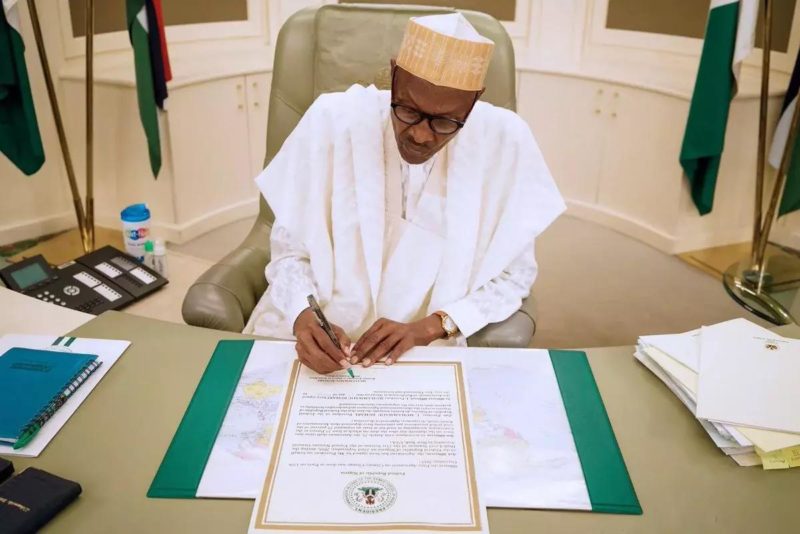Forty-nine days after President Muhammadu Buhari on Tuesday, March 28, 2017 in Abuja signed the instrument of ratification of the Paris Agreement on Climate Change, Nigeria’s endorsement of the global treaty took effect on Tuesday, May 16, 2017 when the country officially presented the authorisation.

According to the United Nations Framework Convention on Climate Change (UNFCCC), Nigeria’s ratification of the pact will enter into force in a month’s time on Tuesday, June 15, 2017.
Consequent upon this development, Nigeria has emerged the 146th country to endorse the Paris Agreement, says Mr Santiago Villalpando, Chief of the Treaty Section of the UN, at the presentation of the Climate Change Endorsement instrument by Nigeria’s Ambassador and Permanent Representative to UN, Prof. Tijjani Bande.
By presenting its endorsement to the UN, Nigeria has deposited its instruments of ratification, acceptance, approval or accession with the depository.
Villalpando, at the historic event in New York on Tuesday, commended Nigeria for taking the bold decision and for its commitment to implementing the Paris Climate Change Agreement.
Speaking after the presentation, Bande said Nigeria had always lived up to its commitment to the UN and other international obligations.
“This presentation of the Climate Change Endorsement is our living up to our commitment.
“We have ratified this agreement and President Muhammadu Buhari has signed it and we have deposited the instrument.
“This is to underline our commitment to the agreement in Paris and this is important for the world.
“Climate change is really important, there’s no doubt about it and we are glad that we have become the 146th member of the UN to ratify it.
“So this is good for Nigeria,” the Permanent Representative said.
He assured the UN and the international community that Nigeria would fulfill its own part of the agreement but called on other countries to live u to their own commitments.
“We operate within the commitment of the agreement and we also expect others to do the same.
“It is important and that is why it took a long time to agree to but we have passed it now. It is just to begin to act within the agreement
“Nigeria has always shown commitment to international obligations, there’s no question about that. Even through our difficult period, we’re still a very reliable member of the international community,” Bande said.
The presentation of Nigeria’s Climate Change Endorsement was witnessed by the Deputy Ambassador, Samson Itegboje, Mr Alex Ajayi Minister and Mrs Eunice Umezurike, First Secretary.
Buhari had signed the Paris Agreement on Sept. 22, 2016 on the sidelines of the 71st UN General Assembly, saying it “demonstrated Nigeria’s commitment to a global effort to reverse the effects of the negative trend”.
By signing the agreement, Buhari committed Nigeria to reducing “greenhouse gas (GHG) emissions unconditionally by 20 per cent and conditionally by 45 per cent” in line with Nigeria’s Nationally Determined Contributions (NDCs).
The president had also signed the instrument of ratification of the agreement on March 28, making the country one of those that had ratified the agreement.
The Paris Agreement builds upon the Convention (UNFCCC) and – for the first time – brings all nations into a common cause to undertake ambitious efforts to combat climate change and adapt to its effects, with enhanced support to assist developing countries to do so. As such, it charts a new course in the global climate effort.
The Paris Agreement’s central aim is to strengthen the global response to the threat of climate change by keeping a global temperature rise this century well below 2 degrees Celsius above pre-industrial levels and to pursue efforts to limit the temperature increase even further to 1.5 degrees Celsius.
Additionally, the agreement aims to strengthen the ability of countries to deal with the impacts of climate change. To reach these ambitious goals, appropriate financial flows, a new technology framework and an enhanced capacity building framework will be put in place, thus supporting action by developing countries and the most vulnerable countries, in line with their own national objectives. The Agreement also provides for enhanced transparency of action and support through a more robust transparency framework.
